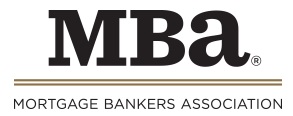WASHINGTON, D.C. (March 29, 2017) – (RealEstateRama) — Dave Motley, CMB, Chairman-Elect of MBA and President of Colonial Savings, F.A. and its divisions — Colonial National Mortgage and CU Members Mortgage testified before the House Committee on Financial Services Subcommittee on Financial Institutions and Consumer Credit, during a hearing titled “The State of Bank Lending in America.” Chairman-Elect Motley’s prepared opening statement is enclosed below. His full written testimony is available here.
[Please Note: These are prepared remarks. Mr. Motley may add to or subtract from these remarks during the course of his presentation. Portions of the text may be omitted during the speech.]
Chairman Luetkemeyer, Ranking Member Clay, and members of the subcommittee, I appreciate the opportunity to testify this afternoon on behalf of the Mortgage Bankers Association.
MBA represents mortgage lenders of all sizes and business models, from small independent mortgage bankers, to community banks like mine, to the nation’s largest financial institutions. Each segment of our industry plays a unique and vital role in the market.
As a four-decade veteran of the mortgage industry, I can tell you from experience that recently-enacted laws have created commendable consumer protections and have made the market safer as a whole. MBA has consistently supported reasonable requirements that will prevent a reemergence of housing and market disruptions. However, we must be mindful that new regulatory demands imposed under Dodd-Frank have also negatively impacted the availability of affordable and sustainable mortgage credit.
MBA’s data show that mortgage credit availability remains far below historic norms. As a result, many borrowers – too often already underserved populations – have been left on the sidelines.
Now that most of Dodd-Frank’s mortgage rules have been implemented, it’s time to review these regulations and make the necessary adjustments. Let me highlight some of the key issues we feel would allow lenders to reach more creditworthy borrowers.
There’s no better place to start than with the CFPB’s “Ability to Repay” rule. MBA appreciates the work of this committee and that of the CFPB to address some of the flaws in the Qualified Mortgage definition. We believe that rather than continuing to address this rule in piecemeal fashion, now is the time to examine it holistically so that all lenders can deliver QM loans to consumers, regardless of size or business model.
To achieve this, we urge Congress and the Bureau to:
- Expand the legal safe harbor to all QM loans
- Increase the small loan threshold to fit more smaller-balance loans under the QM umbrella
- Establish alternatives to the QM underwriting criteria to allow lenders to use other commonly accepted underwriting standards
- Broaden the ability for lenders to cure defects and technical errors in loans
- Pass the Mortgage Choice Act which would exclude title insurance fees paid to lender-affiliated companies from the calculation of points and fees
- And finally, start the process of replacing the so-called “QM patch” by developing a transparent set of criteria to define QM.
Beyond these QM changes, there are several other areas that should be addressed.
First, as a mortgage servicer, I know the cost to service loans has increased dramatically. This is due to new CFPB rules as well as the punishing treatment of Mortgage Servicing Rights under the Basel III Framework. Under that rule, banks are required to hold extraordinary amounts of capital to support the MSR asset, making it less likely that banks like mine will retain mortgage servicing. Amid the backdrop of complicated and conflicting servicing rules, these increased costs directly impact consumer access to credit and make new mortgage production less attractive to lenders.
Second, the CFPB should be required to provide authoritative written guidance to accompany its rules. The CFPB’s resistance to providing timely written guidance has resulted in confusion, increased costs and credit overlays by uncertain investors. This was particularly notable in the implementation of the “Know Before You Owe” rule.
Third, regulatory burdens on independent mortgage bankers need to be addressed. For example, state-licensed lenders face frequent and duplicative examinations from the CFPB and each state in which they operate. MBA urges rationalizing this process by requiring the CFPB to adopt formal, risk-based standards for examinations, and to better coordinate with the states. MBA also supports establishing an appeals process for CFPB exams that applies to both banks and nonbanks, and adoption of transitional licensing under the SAFE Act.
Fourth, the Justice Department’s enforcement actions under the False Claims Act continue to have a chilling effect on lender participation in the FHA program. The resulting legal liability, for what are oftentimes immaterial defects, has forced lenders to impose new credit overlays or limit their involvement in FHA altogether. So long as the Justice Department continues to impose draconian penalties on lenders for foot faults, the remaining FHA lenders will continue using overly cautious, defensive underwriting that limits options for borrowers.
In conclusion, the current regulatory environment has increased costs and forced many responsible lenders to limit their lending. This harms consumers – most often low-to-moderate income borrowers, minorities, and first-time homebuyers. We urge this subcommittee to do a thorough review of these rules and regulations and make adjustments where necessary. Done properly, we can balance the need for appropriate consumer protections while ensuring access to safe, sustainable mortgage credit.
Thank you.
CONTACT
Ali Ahmad
(202) 557- 2727


